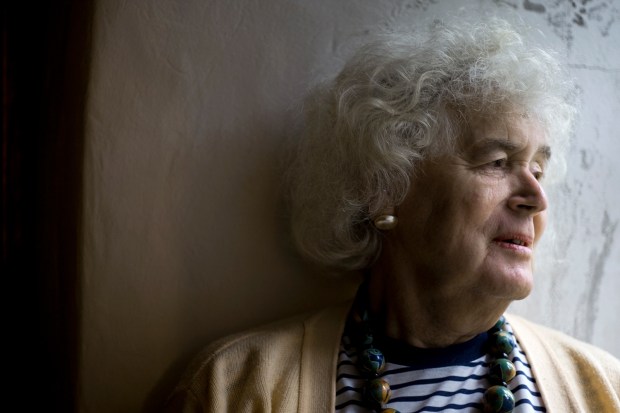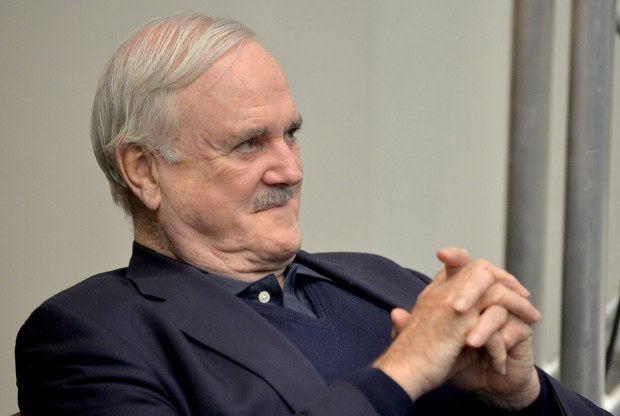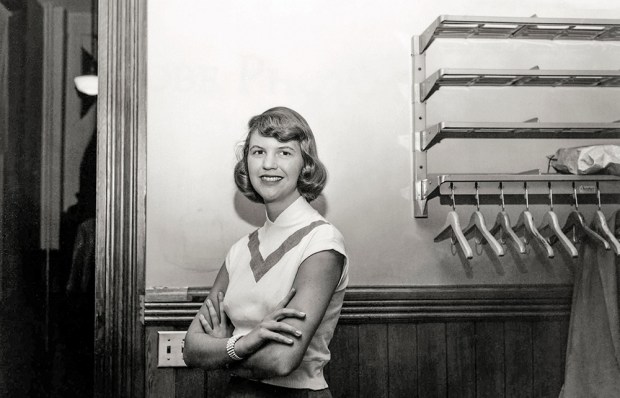‘The Age of Anxiety’, W. H. Auden’s book-length poem, has always been described as strange, and difficult. It is an eclogue, but set far from the countryside, in a bar in New York, in the middle of the second world war. It looks like a modern script on the page but metrically it sounds more like Old English. The text flits between conversation and inner thought and is steeped in Jungian philosophy, mysticism and mirrors.
When I first read it in my twenties, I gave up on trying to understand it and simply allowed the words to wash over me. It’s an approach I recommend taking while listening to Robin Brooks’s haunting new dramatisation of the poem on Radio 3. The reading extends to an hour and 40 minutes, which may strike some as a commitment, but is worth every second.
We follow four strangers in the bar as they embark upon a not entirely sober voyage into modern consciousness. There is Quant, a shipping clerk who hates his job; Malin, a Canadian medical intelligence officer; Rosetta, a department-store buyer; and Emble, a man in uniform.
Their descriptions of existential dread, sexual fragility, Benzedrine dependence and loneliness, often interpolated rather than quoted directly from the poem, transcend time. ‘In England one is lonely because everyone else is against one,’ says Rosetta, beautifully voiced by Genevieve Gaunt. ‘In America one is just lonely.’ Auden relocated to the States in 1939 and felt that same familiar struggle between helplessness and collusion.
Hearing radio bulletins burst in upon the strangers with reports of rising prices, war in Europe, floods, fire and armament, we are sucked into their world and left feeling that we, too, are living in an age of anxiety. One could even pick out Quant (an empathetic Jonjo O’Neill) as a poster boy this winter, with his habit of going to the public library ‘to keep warm and read’.
But anxiety is the product of internal as well as external pressures. The poem comes into its own as it clarifies our inability to accept the irreversibility of the decisions we make as the deeper source of anxious feelings. The strangers’ journey into the human body in search of ‘prehistoric happiness before the fall’ makes for intensely relatable listening. The most alliterative of Auden’s lines may fall uneasily upon modern ears (‘Long-legged ladies with little-legged dogs/Lolled with their lovers by lapsing brooks’) but goodness do they get to the gut.
One of the criticisms made of humans in the poem is that we are averse to change and ‘held back by an outmoded moral code’. The novelist Chimamanda Ngozi Adichie said something similar of our generation in her recent Reith Lecture for the BBC. In a departure from tradition, this year’s lectures are being delivered by four different speakers, one on each of the ‘Four Freedoms’ Franklin D. Roosevelt identified as the pillars of democracy. Adichie’s, on the freedom of speech, was more than anything an incitement to moral courage.
She compared growing up in the 1980s in Nigeria – where her parents’ friends instinctively spoke in a whisper whenever they criticised the authoritarian government – to living in a western democracy pervaded by ‘social censure’ today, with its mob-imposed restrictions on loose talk. We are witnessing, she said, an ‘epidemic’ of self-censorship, which is ‘wilfully blind to its own tyranny’ and positively disastrous for creativity.
I went to the live recording of Adichie’s lecture at the BBC in London (the other lectures have been recorded in Glasgow, Swansea and Washington DC) and wasn’t surprised to see the theatre packed out with people leaning in to hear her condemn the introduction of ‘sensitivity readers’ to publishing houses and the establishment of a landscape that would prohibit the creation of books such as The Satanic Verses today. She quoted powerfully from Alexis de Tocqueville and John Stuart Mill on the dangers of kowtowing to prevailing opinion.
Her most original point, I thought, was that puritanism has bred the assumption that ‘good people’ do not need free speech, because they couldn’t possibly wish to say anything harmful, whereas ‘bad people’ grasp at it ‘as a cover to say bad things’.
It is difficult to say much that is original about freedom of speech, but Adichie’s call for collective moral courage in place of self-defeating social censure felt almost Auden-like in its despairing wisdom of the failures of our times. I did not need persuading of the value of the Reith Lectures – they are, year on year, some of the most stimulating things on radio – but I left intrigued to hear how unifying the other Reith lecturers, Rowan Williams, Darren McGarvey and Fiona Hill, will be as they address the accompanying crises of our increasingly anxious age.
The post An author speaks out against social censorship: The Reith Lectures reviewed appeared first on The Spectator.
Got something to add? Join the discussion and comment below.
Get 10 issues for just $10
Subscribe to The Spectator Australia today for the next 10 magazine issues, plus full online access, for just $10.
You might disagree with half of it, but you’ll enjoy reading all of it. Try your first month for free, then just $2 a week for the remainder of your first year.














Comments
Don't miss out
Join the conversation with other Spectator Australia readers. Subscribe to leave a comment.
SUBSCRIBEAlready a subscriber? Log in